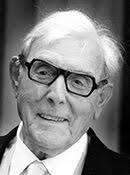Remembering Eric Sykes: A Legend of British Comedy

Introduction
Eric Sykes, a celebrated figure in British comedy, passed away in July 2012, leaving behind a legacy cherished by many. His unique blend of slapstick humour and wit not only entertained audiences for decades, but also paved the way for future generations of comedians. As Britain commemorates his contributions to entertainment, the importance of his work continues to resonate in today’s comedic landscape.
Early Life and Career
Born on May 4, 1923, in Oldham, Lancashire, Eric Sykes began his career in the entertainment industry during World War II. He served in the Royal Air Force before transitioning to radio, where he gained recognition from his work on BBC Radio. His early success laid the groundwork for his transition into television, which would ultimately become his most recognised platform.
Television Success
Sykes enjoyed a prolific television career, most notably with his self-titled sitcom, ‘Sykes’, which ran from 1960 to 1986. The show, co-starring Hattie Jacques, featured everyday scenarios presented in a humorous light, showcasing Sykes’ remarkable talent for physical comedy and clever writing. The character-driven stories and Sykes’ endearing persona made the programme a staple of British comedy, earning him numerous accolades.
Film Appearances
In addition to his television work, Eric Sykes also carved a niche for himself in film. He appeared in several notable films, including ‘The Rise and Rise of Michael Rimmer’ (1970) and ‘The Spy Who Came in from the Cold’ (1965). His performances often reflected his comedic prowess, whether in a supporting or leading role, showcasing his ability to captivate audiences regardless of the medium.
Legacy and Influence
Eric Sykes’ influence extends beyond his lifetime; he inspired an array of modern comedians and television shows. His talent for blending traditional British humour with innovative storytelling techniques remains a benchmark in the industry. The recent resurgence of interest in classic British comedians highlights the timeless appeal of Sykes’ work, as younger audiences discover the charm and wit that defined his career.
Conclusion
As we remember Eric Sykes and his contributions to British comedy, it is evident that his legacy remains firmly embedded in the hearts and minds of fans worldwide. Sykes’ ability to entertain and challenge comedic norms cements his status as a true legend, and his work is likely to continue influencing future generations. By reflecting on his impact, we celebrate not only a remarkable career but also the unifying power of laughter that Sykes so masterfully delivered.









